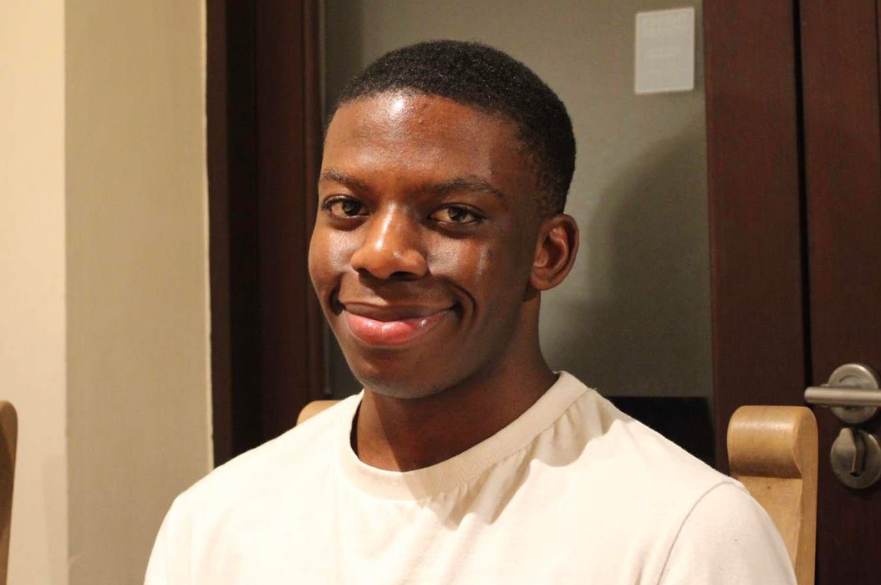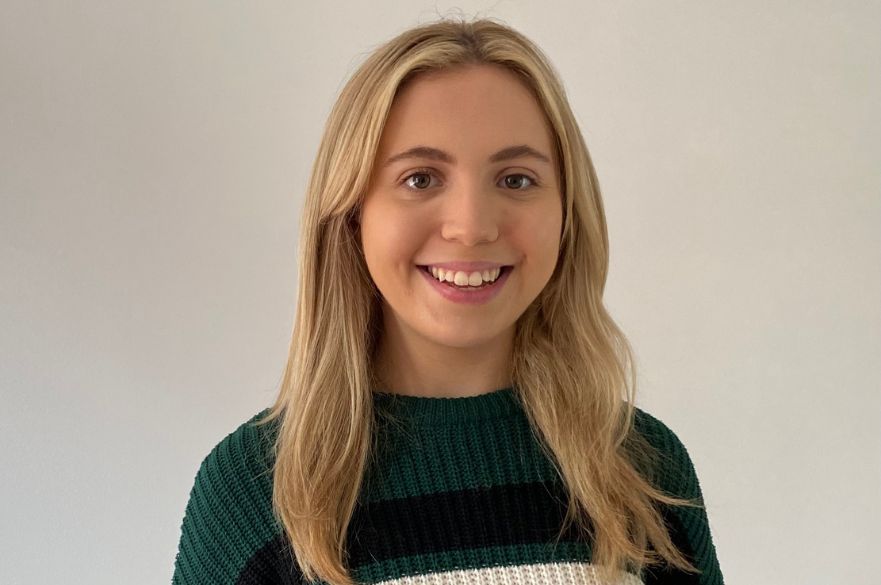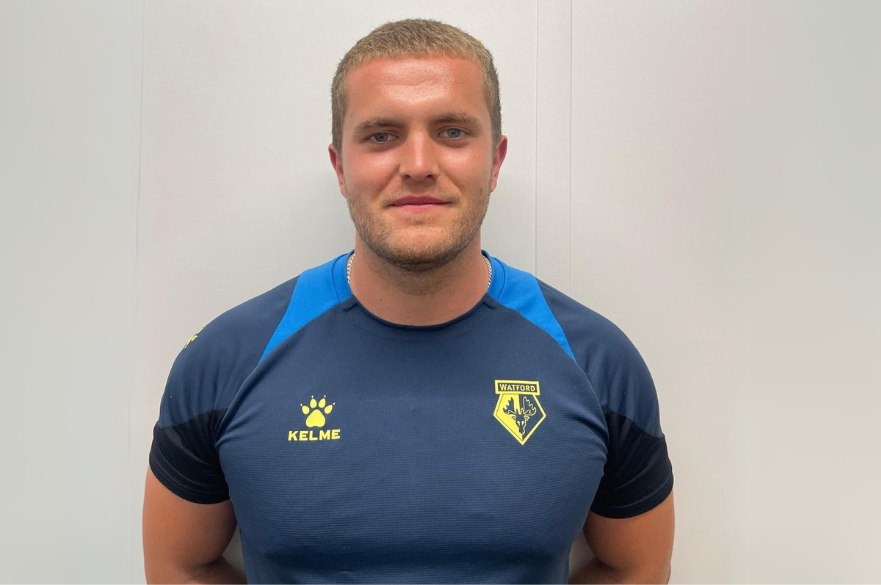
I’d definitely recommend my course to anyone. The subject matter covered is diverse enough to give you insight into a wide range of psychological areas.
More about Israel
Why NTU?
What inspired you to study BSc (Hons) Psychology (Forensic Psychology)?
"I never really knew what I wanted to study at university when I was younger, but as soon as I started doing psychology during A-levels I knew it was the course for me.
I think what I enjoy the most, is that it gives you the opportunity to study people within a wide range of areas, whether it’s studying factors that affect people’s memory or what determines the different types of attachments we form during childhood.
Not only are the topics that form the subject interesting, but once you learn something new you can’t help but think about how they’re applicable in everyday life, something I am very guilty of doing!"
Why did you choose your course and NTU?
"The undergrad psychology course at NTU is really good due to the wide range of topics it covers. In my first year alone I studied different areas regarding biological, cognitive, social and developmental psychology. Each of these modules covers a range of subtopics within them, providing for a very well-rounded study of psychology.
I think this is really important, especially for many undergrads like me who had interests in different areas of psychology but aren’t sure which area they specifically wanted to specialise in. This is something that NTU’s diverse psychology course helps with, especially with the inclusion of specific pathways you can specialise in after first year. This was something I particularly found interesting and so when I had the opportunity to go onto the forensic pathway, I knew this was an area I wanted to learn more about."
What’s your experience been like of your course so far?
"I’ve really enjoyed the different topics covered over the four years and I think the different ways in which we’ve been assessed (essays, presentations, podcasts, exams) have helped me step out of my comfort zone and grow as a person and as an academic.
I’ve made a lot of friends on my course which has helped a lot when it comes to studying and presentations. Having friends you can work with to encourage each other to do your best and learn from has really helped me, especially during periods when I’m feeling less motivated.
The lecturers are all really good too, always happy to answer any questions I may have and are very receptive to any feedback that can help make our learning environments more positive.
One of the highlights of my course was my professional practice in psychology module in my final year. I was in a group where we had to work with an external Nottingham organisation and develop recommendations to improve issues within the scenario they gave us and then present these in a conference later. I enjoyed this as it was one of the first times I was able to apply psychological theory to a very real issue, which would then be assessed. As other groups had the same scenario as mine, this pushed me to make sure my recommendations were as effective and detailed as possible in order to avoid any redundancy. Overall, the experience was really testing but enjoyable for me, and I’m glad I was able to take part."
Have you been involved in any projects or extra-curricular activities that have supplemented your studies run through NTU?
"The most prominent extracurricular group I have been part of during my time at NTU has been the Writing, Reading and Pleasure (WRAP) group. During my time here, I developed an interest in writing stories and was eager to learn more about how I can improve and just socialise with others with similar interests, which is where I found the WRAP group. They have a range of weekly events relating to writing, sharing and reading as well as events where you can hear from published authors, poets and other creators. Even if you’re not sure, I’d definitely recommend this group to anyone with even a slight interest in reading and writing."
What does Social Sciences mean to you?
"The thing I enjoy the most about psychology as a social science, is how it enables you to understand other humans. Psychology lets you study the human mind, whether that’s how it’s impacted by memory, trauma, stress or a multitude of other factors.
Having knowledge of how these areas affect humans, allows you to understand them and their impact on their behaviour, knowledge which when utilised correctly allows you to help others. This is the most important thing regarding social sciences to me and is how I plan to use my knowledge of psychology in my future career, whatever that may be."
On Placement
Have you completed any work placements on your course?
"I did a year-long placement working as a business administrator at HMP Leyhill, which was really good. At first, I was just surprised to get it as I know how competitive these kinds of placements are, especially paid ones for relatively inexperienced students, so in the first couple weeks, I was really nervous and eager to do everything perfectly.
Having never worked in a prison before there was a lot to get used to (especially working in an open prison, which is far from the type of usual prison depicted in media), but I managed to settle in very quickly. My manager and colleagues were amazing at making sure I never jumped into anything I was uncomfortable with too early and were always there to provide support when I needed it.
While the tasks I started off doing were mainly general admin duties (booking appointments, filling in spreadsheets etc.) these were really useful in helping me get used to the different types of work done by forensic psychologists and those they work with.
I also gained a lot of experience shadowing psychologists who were conducting psychological assessments, risk reduction programmes, visiting other prisons and sitting in on multidisciplinary team meetings. As my placement went on, there was a greater emphasis on getting me different shadowing opportunities like these, all of which were really helpful in getting me to understand the different roles within the prison system.
The most important skills I learned were the importance of effective teamwork, communication, adaptability, and focus. In prison, things often change when you least expect it and so it is important for you and your team to be able to adapt to these changes immediately in order to maximise the potential for a successful outcome. These skills are not only crucial here, but within a wide range of work environments, and so will be important for me to improve wherever I go."
Do you have any memorable moments from your placement?
"I think the most memorable moments from my placement were my trips to other prisons. Not only did I get in-depth experiences in different prison environments, but I got to meet many of the psychologists that I had been talking to over email for the last couple of months. This helped me really get a scope of how different certain prisons are and how this affects the needs of their staff and prisoners, such as the emphasis different prisons have on interventions, which varied a lot in the ones I went to.
My experiences shadowing psychological assessments were also very exciting too. These were my most in-depth experiences of understanding the role of a psychologist within a forensic environment and allowed me to really see how the skills and knowledge I’d learned during my course would transfer within an intense psychological workplace. I shadowed a range of assessments, allowing me to see the skills needed to assess prisoners with vastly different needs and how the different psychologists approached assessments."
Support
What do you think of the support available from tutors and staff at NTU?
"The tutors and staff at NTU have been really helpful in my experience. While I didn’t have any serious issues outside of academics that required pastoral support, I felt confident that if I did I could go to my tutor or other staff for help if necessary. Regarding my course work, the staff have been great.
My tutors/supervisors have always been really open to discussions and provide great advice whenever I had any struggles with a task or simply wanted to know where I could get more information on an area. In final year specifically, my supervisors have gone above and beyond to help me make my research project the best it can be, providing constructive feedback that has helped me elevate the quality of my work in ways I wasn’t even aware of before.
The area where I have needed the most support has been regarding my plans post-graduation. My personal tutor this year has helped a lot, checking my plans to make sure I’ve thought them through properly and has gone out of their way to help me with relevant opportunities that they are aware of."
Outside of the Lecture Theatre
Did you find it easy to make friends and settle in at NTU?
"NTU is a really good place to make friends. I have made close friends on my course, in my accommodation and just at other social events such as Student union nights or societies.
Having been there myself I know a lot of students worry about making friends when coming to uni, but it honestly isn’t as difficult as people may think. I think it’s easy to forget (especially in first year) that everyone else is there trying to make friends too, worried about the same things you are. I’d definitely advise people to make a really conscious effort to socialise, whether that’s in your accommodation, by joining a society or by striking up a conversation in your lecture. Whether it’s your first second, third, or forth year it’s never too late to make new friends and having people in a similar situation as you that you can trust can really improve your overall uni experience."
The Next Steps
What’s next for you after NTU?
"After finishing my undergraduate course, I plan to take a masters in clinical psychology and then eventually study a clinical doctorate in psychology in order to become a fully qualified clinical psychologist."
How is NTU helping you to achieve your career goals?
"My experience at NTU has helped inform me about the different psychological careers available to me in the future and the various paths I could take to achieve them. This is something that I was relatively uninformed about before starting and my knowledge on this since starting has grown incredibly in comparison. This is also due to the placement year I did which helped me experience first-hand what I would and wouldn’t like in certain fields, as well as opening my eyes to a range of different careers that I didn’t even know existed before."
Advice
What top tips would you give anyone thinking about studying your course at NTU?
"I’d definitely recommend my course to anyone with even a slight interest in studying psychology. The subject matter covered is diverse enough to give you insight into a wide range of psychological areas, but also acts as a foundation for you to specialise in other areas of the field such as forensic, clinical and developmental, should you want to. The staff and other students are great and very supportive and have been crucial to me enjoying my experience as much as I have.
While it’s not necessary to, I’d advise anyone thinking of psychology to consider doing the sandwich course and look at what career they’d look to use psychology in. A key factor in any postgraduate psychology career is experience. The sandwich year allows you to spend a year between year two and three out working, in virtually any placement you can sort out, and having this year's worth of experience at such a young age, on top of a good grade in a BPS-accredited course can really help you stand out and get psychologically related jobs more easily than others without this."
Still need help?
-

STUDENT PROFILE
Georgia Kitchener
Psychology (Forensic Psychology) / Psychology (Criminal Psychology)United Kingdom
https://www.ntu.ac.uk/study-and-courses/courses/our-students-stories/social-sciences/georgia-kitchener
-

STUDENT PROFILE
Helena Lovatt
Psychology (Forensic Psychology) / Psychology (Criminal Psychology)United Kingdom
https://www.ntu.ac.uk/study-and-courses/courses/our-students-stories/social-sciences/helena-lovatt
-

STUDENT PROFILE
Aaron Rath
Sport and Exercise ScienceUnited Kingdom
https://www.ntu.ac.uk/study-and-courses/courses/our-students-stories/science-technology/aaron-rath